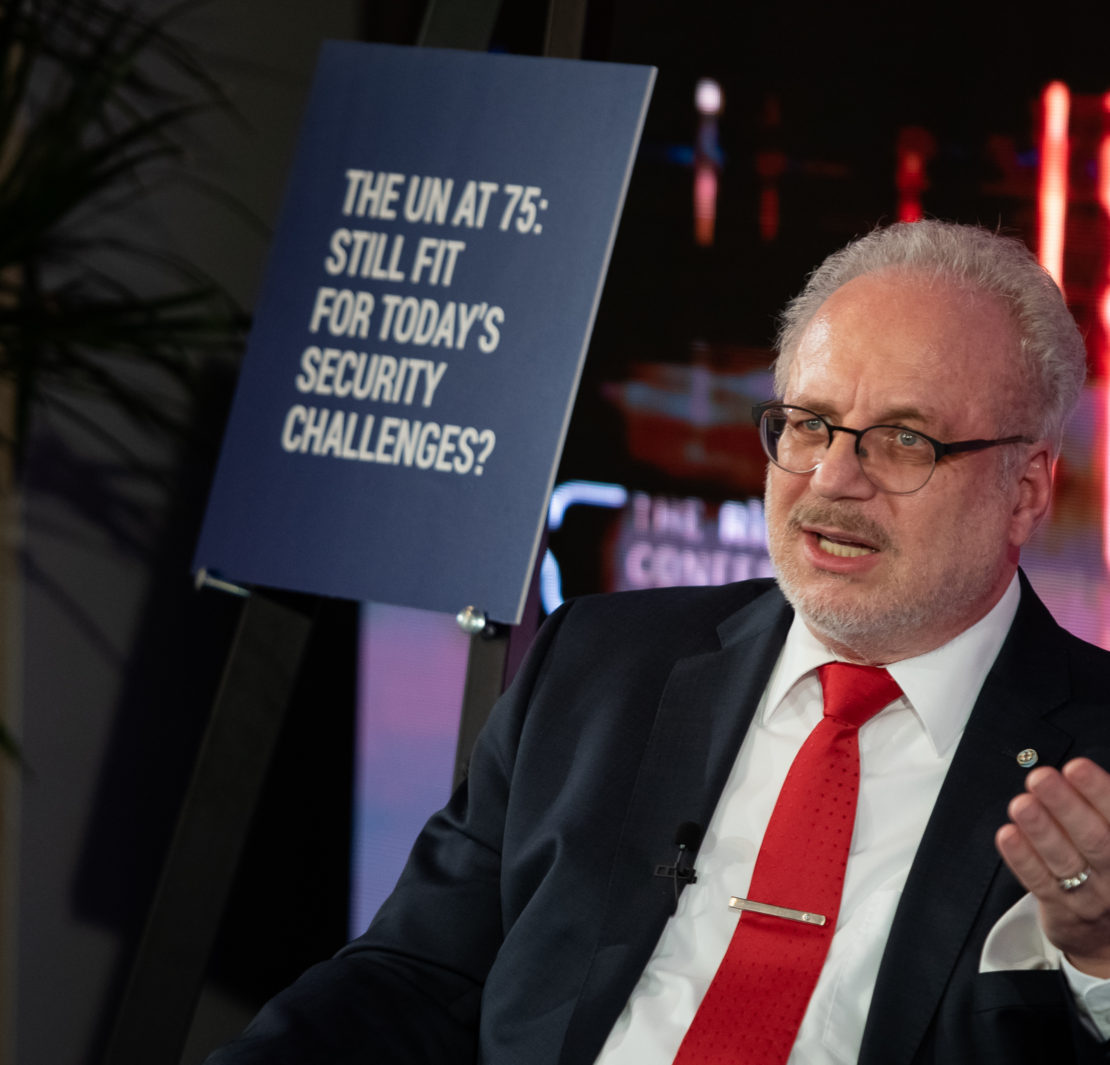Panel Participants:
H.E. Egils Levits, President of the Republic of Latvia
H.E. Kersti Kaljulaid, President of the Republic of Estonia
H.E. Gitanas Nauseda, President of the Republic of Lithuania
H.E. Sauli Niinistö, President of the Republic of Finland
Moderator:
Prof. Žaneta Ozoliņa, Chairwoman of the Board of the Latvian Transatlantic Organisation
The moderator began the discussion by citing that new multilateralism will need a flexible network that must maximize the strengths of interconnected institutions, focused around problem solving through cooperation. If that is what the global order is evolving into – it is important to understand how the UN fits into the picture, and whether it is also capable of undergoing and surviving evolution.
The first discussant commented that new multilateralism is already in effect, and that international organizations must already work this way to remain effective. The discussant continues to elaborate that the UN is a central channel for bridging important discussions and gaps in a central and open forum. It is how, for example, Estonia managed to develop a memorandum of understanding with the African Union in order to help develop digital tools there. The discussant also highlighted that the UN remains the “nuclear weapon” of small nations, accessible only through international law and a rules-based environment. The discussant continued noting that there are many issues that need to be discussed and are worth discussing. Enlarging the security council and its permanent members towards Africa, where most conflicts take place is an important discussion. Similarly, the cyber area needs to become a higher priority in the security council and other rungs of the UN.
The next discussant pointed out that Europe can no longer consider itself an exception – the problems of the world are at its door in the form of Covid-19 as much as armed conflict. There is much to do to make the UN more relevant for today, but at the core is the supremacy of international law and principle of sovereignty, which the Baltic states hold very dear. It is important that the Baltics and transatlantic alliance take a strong stance towards upholding the regime of rules central to the success of the international community – breaching rules requires a response. The discussant brings up the current episode of Nagorno-Karabakh, where the UN will participate to provide help to refugees. Similarly, the UN has an essential role in assisting the establishment of dialogue in Belarus. The role of the UN is still very much needed, however, it must not turn a blind eye towards violations of international law.
The floor was handed to the next discussant, who highlighted that while it is fashionable to say that multilateralism is broken – that is not true. It remains in operation, but must be reinforced, reformed, and updated to be fit for the future. It is important to acknowledge its achievements: the world food programme received a noble peace prize, for example, through efforts that have been felt by millions of people. Similarly, the UN is the only forum through which truly global issues like global warming or epidemics can be fought. The discussant emphasizes that it is exactly at this time, that the transatlantic alliance is in need of international cooperation more than ever, and for small states especially – effective multilateralism is essential to their interests. It is important to question what form of multilateralism it is, who is leading it and how. Of course, like-minded groups are needed, but it is becoming increasingly important to also consider how to convince those that are neither committed multilateralists or democracies to cooperate. It is important to note that the UN was not created to take humanity to paradise, but to save it from hell, and this should remain its main role going forward – a global forum for dialogue and discussion of different policy options.
The next discussant highlighted that there is currently no single power that dominates the world, and a variety of regional powers are on the landscape with different interests. It is no longer possible to solve issues that are increasingly global without the collective participation of all of these nations. Though it is possible to ask whether the UN glass is half empty or half full – it has created a solid basis of international law, conventions, and soft law in the form of global standards of behavior to allow the measurement of states towards a certain norm. The UN needs to change, and it is – but slowly. There are discussion of global regulations for a variety of technology, which would never have come up in the past ten years. It is important that all states maintain their efforts to ensuring this change happens.
The discussion was concluded with agreement that the role of the UN is only bound to increase in the next 70 years of its existence, as the range of global issues continues to increase. However, it is the role of member states – small and large – to contribute to the UN and ensure that the UN agenda continues evolving.

